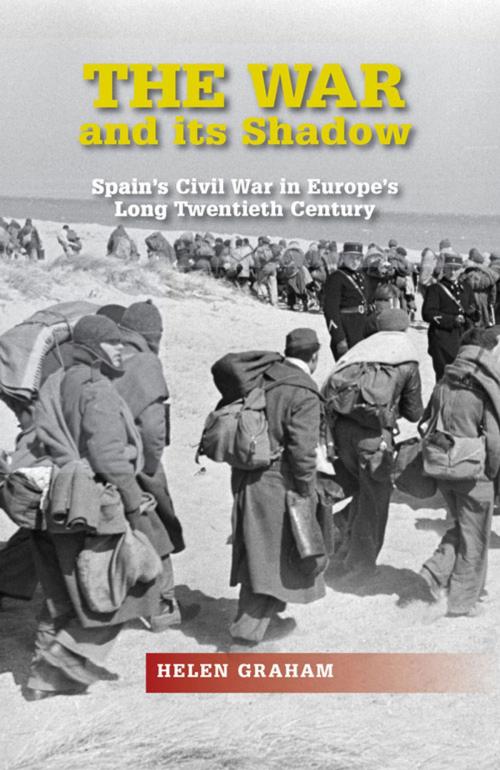The War and Its Shadow
Spain's Civil War in Europe's Long Twentieth Century
Nonfiction, History, Spain & Portugal| Author: | Helen Graham | ISBN: | 9781782840824 |
| Publisher: | Sussex Academic Press | Publication: | May 1, 2012 |
| Imprint: | Sussex Academic Press | Language: | English |
| Author: | Helen Graham |
| ISBN: | 9781782840824 |
| Publisher: | Sussex Academic Press |
| Publication: | May 1, 2012 |
| Imprint: | Sussex Academic Press |
| Language: | English |
Helen Graham explores the origins, nature, and long-term consequences of the exterminatory civil war in Spain, charting the resonant forms of political, social, and cultural resistance to it and the memory and legacy these have left behind in Europe and beyond. Not least is the growing sense of the enormity of what, in greater European terms, the Republican war effort resisted: Nazi adventurism and the continent-wide wars of ethnic and political “purification” it unleashed. In Spain today the civil war remains “the past that will not pass away.” The long shadow of the Second World War is now also bringing back center frame its most disquieting aspects, revealing to a broader public the stark truth already known by specialist historians—that in Spain, as in the many other internecine wars soon to convulse Europe, war was waged predominantly upon civilians—millions were killed not by invaders and strangers, but by their own compatriots, including their own neighbors. Across the continent, Hitler’s war of territorial expansion after 1938 detonated myriad “irregular wars, of culture as well as of politics, which took on a “cleansing” intransigence as those driving them sought to make “homogeneous” communities, whether ethnic, political, or religious. So much of this was prefigured with primal intensity in Spain in 1936, where, on 17–18 July, a group of army officers rebelled against the socially reforming Republic. Saved from almost certain failure by Nazi and Fascist military intervention, and by a British inaction amounting to complicity, these army rebels unleashed a conflict in which civilians became the targets of mass killing. The new military authorities authorized and presided over an extermination of those sectors associated with Republican change—especially those who symbolized cultural change and thus posed a threat to old ways of being and thinking: progressive teachers, self-educated workers, “new” women. In the Republican zone, resistance to the coup also led to the murder of civilians. This extrajudicial and communal killing in both zones fundamentally made new political and cultural meanings that changed Spain’s political landscape forever.
Helen Graham explores the origins, nature, and long-term consequences of the exterminatory civil war in Spain, charting the resonant forms of political, social, and cultural resistance to it and the memory and legacy these have left behind in Europe and beyond. Not least is the growing sense of the enormity of what, in greater European terms, the Republican war effort resisted: Nazi adventurism and the continent-wide wars of ethnic and political “purification” it unleashed. In Spain today the civil war remains “the past that will not pass away.” The long shadow of the Second World War is now also bringing back center frame its most disquieting aspects, revealing to a broader public the stark truth already known by specialist historians—that in Spain, as in the many other internecine wars soon to convulse Europe, war was waged predominantly upon civilians—millions were killed not by invaders and strangers, but by their own compatriots, including their own neighbors. Across the continent, Hitler’s war of territorial expansion after 1938 detonated myriad “irregular wars, of culture as well as of politics, which took on a “cleansing” intransigence as those driving them sought to make “homogeneous” communities, whether ethnic, political, or religious. So much of this was prefigured with primal intensity in Spain in 1936, where, on 17–18 July, a group of army officers rebelled against the socially reforming Republic. Saved from almost certain failure by Nazi and Fascist military intervention, and by a British inaction amounting to complicity, these army rebels unleashed a conflict in which civilians became the targets of mass killing. The new military authorities authorized and presided over an extermination of those sectors associated with Republican change—especially those who symbolized cultural change and thus posed a threat to old ways of being and thinking: progressive teachers, self-educated workers, “new” women. In the Republican zone, resistance to the coup also led to the murder of civilians. This extrajudicial and communal killing in both zones fundamentally made new political and cultural meanings that changed Spain’s political landscape forever.















